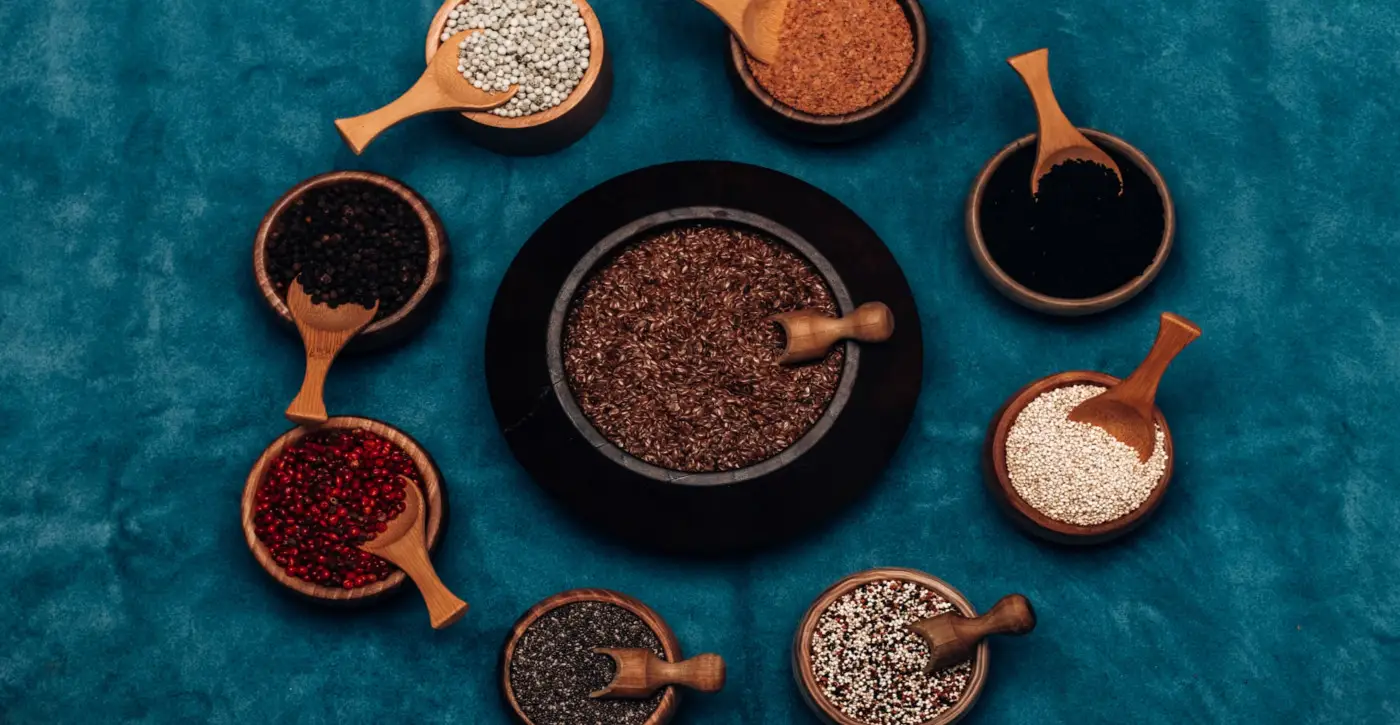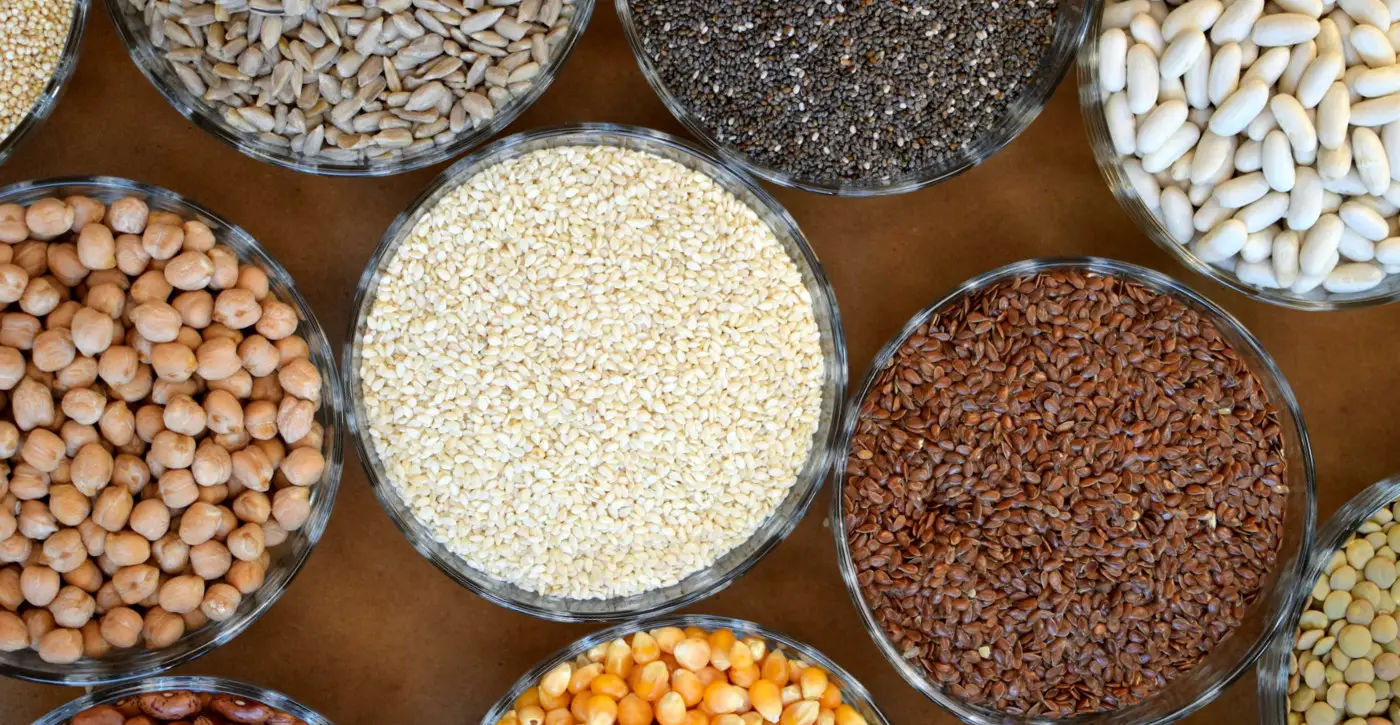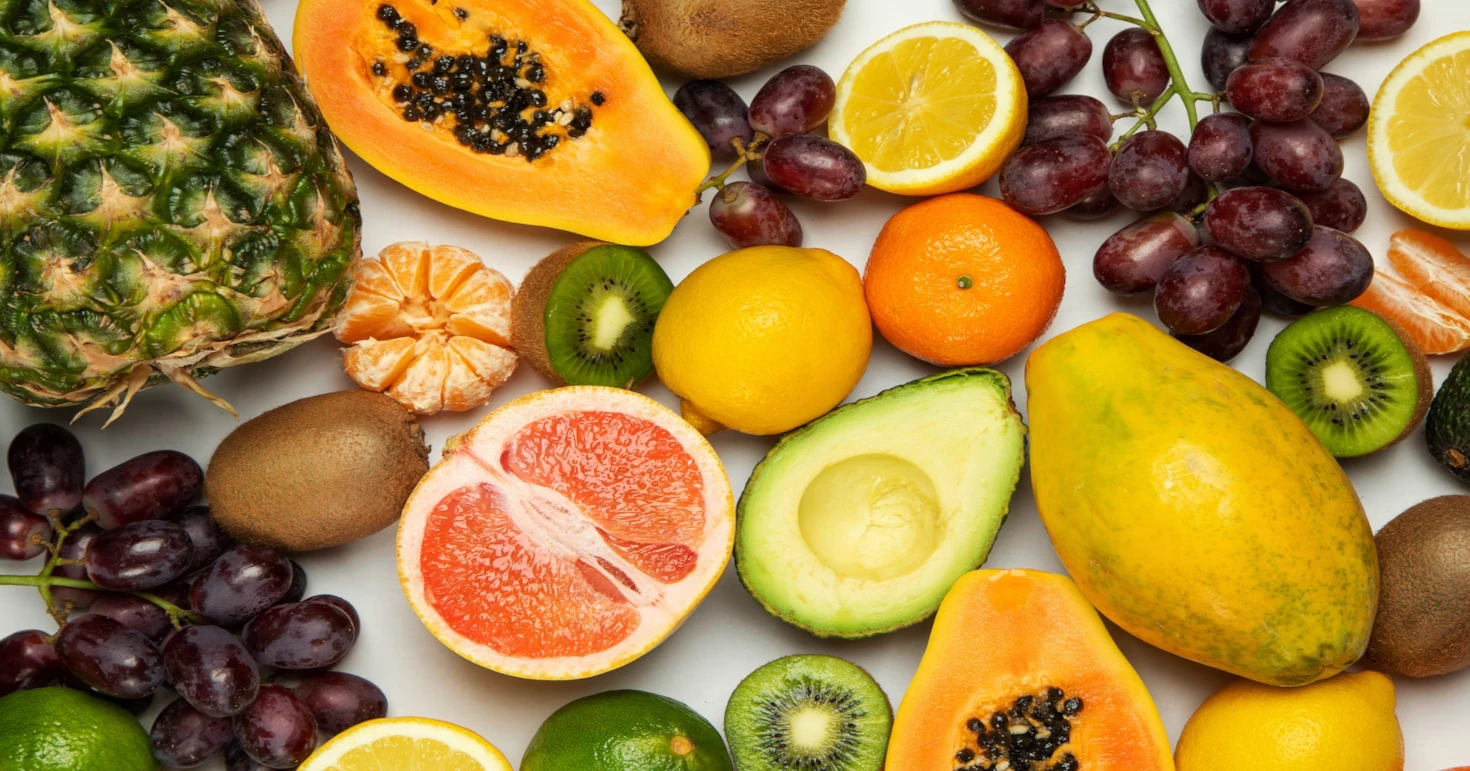Sesame Seeds Lysine and Arginine Info Sheet
Overview
Sesame seeds are tiny seeds that come from a flowering plant. They have a nutty flavor and a crunchy texture. They can be white, black, or brown.Sesame seeds are high in protein, healthy fats, fiber, and various vitamins and minerals.
They may help lower cholesterol, prevent diabetes, and reduce the risk of heart disease.
They may also improve bone health, skin health, and hormone balance.
However, sesame seeds may also cause allergic reactions in some people and may contain traces of pesticides.
| Name | Lysine (mg/100g) | Arginine (mg/100g) | Ratio |
|---|---|---|---|
| Sesame Seeds | 827mg | 3327mg | 0.248 |
Sesame Seeds contains 827mg of Lysine and 3327mg of Arginine per 100g of product.
This means Sesame Seeds has a low Lysine-Arginine ratio of 0.248.
Because Sesame Seeds contains much higher levels of arginine than lysine, limiting its consumption is recommended by people who suffer from herpes, as it may trigger outbreaks.
Lysine Considerations
Sesame seeds are a good source of lysine, an essential amino acid that is important for protein synthesis, collagen formation, and calcium absorption.
Lysine may also help prevent cold sores and herpes infections.
Lysine can help prevent or treat cold sores, which are blisters caused by the virus HSV-1, also known as herpes.
Lysine works by blocking the growth of HSV-1, which needs another amino acid called arginine to multiply and infect cells.
Lysine can only be obtained through diet, and can be found in different high-protein foods like dairy products, fish, eggs, meat and poultry.
Arginine Considerations
Sesame seeds are also a good source of arginine, another essential amino acid that is involved in nitric oxide production, wound healing, and immune function.
Arginine may also help lower blood pressure, improve blood flow, and enhance erectile function.
Arginine can contribute to cold sore outbreaks, which are blisters caused by the HSV-1 virus, also known as herpes.
Arginine aids in the growth of HSV-1, which needs this particular amino acid to multiply and infect cells.
Arginine can be obtained through our diet, and is found in different high-protein foods such as nuts, seeds, and chocolate.
Regrettably, the herpes virus is known to "feed" on arginine, and a diet a good source of arginine compared to lysine may increase the frequency and severity of cold sores and herpes outbreaks.
Lysine-Arginine Ratio
Sesame seeds have a low lysine-arginine ratio, which means that they provide more arginine than lysine.
This may not be ideal for people with viral infections, such as herpes simplex virus, as arginine may stimulate the replication of the virus.
Therefore, people with such infections may want to consume more lysine-rich foods and less arginine-rich foods.
The herpes simplex virus, which causes oral and genital herpes, needs arginine to multiply and infect cells.
Lysine, on the other hand, can interfere with the absorption of arginine in the intestine, and thus limit the availability of arginine for the virus.
By eating a diet higher in lysine than arginine, one may be able to prevent or treat herpes flare-ups.
Foods that have a high lysine-arginine ratio include milk, cheese and yogurt, fish, poultry, fruits, and vegetables.
These foods can supply the body with sufficient lysine to compete with arginine and inhibit the virus from replicating and causing flare-ups.
Dietary Considerations
Seeds are edible kernels that are enclosed in a protective outer covering, such as sunflower seeds, pumpkin seeds, flax seeds, and chia seeds.
Seeds are a great source of protein, fiber, healthy fats, and minerals.
That said, seeds also have high levels of arginine compared to lysine, which can be problematic for people with herpes.
Arginine can stimulate the replication of the herpes virus, leading to more frequent and severe outbreaks.
Lysine can counteract the effects of arginine, but it is not abundant in seeds.
Because of this, seeds should be consumed sparingly or with caution by people with herpes.
Some seeds that have very high amounts of arginine are sunflower seeds, pumpkin seeds, and sesame seeds.

For example:
A well-balanced and healthy diet that strengthens your immune system and lowers inflammation is important.
This means you should eat a lot of fruits, vegetables, whole grains, lean protein, and good fats, and avoid processed foods, added sugars, alcohol, and caffeine.
Drinking enough water to keep yourself hydrated and remove toxins from your body.
Water can also help prevent dryness and irritation of the skin and mucous membranes, which can result in fewer outbreaks.
L-lysine supplementscan help you prevent herpes outbreaks and stop a cold sore before it develops by depriving the virus of arginine, which it needs to form a cold sore.
To prevent outbreaks, avoid foods that can cause allergic reactions or sensitivities, such as gluten, dairy, nuts, eggs, or shellfish.
These foods can harm your immune system and make inflammation worse.
Check more food information






